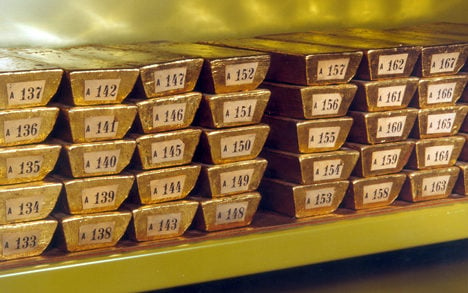In a letter to a parliamentary committee, the Bundesrechnungshof, which audits Germany’s finances, complained that the Bundesbank had never made sure that large parts of its gold reserves held by foreign central banks are subject to regular on-the-spot checks.
In the confidential letter auditors scolded the central bank for relying entirely on records, saying no inspector had ever been sent to “physically register, assay and weigh” Germany’s stock of gold bars abroad.
As of December 31, 2011, Germany had 3,396 tonnes of gold valued at some €132.9 billion, most of which is held in the Bundesbank’s own vaults, but some of which is deposited at the US Federal Reserve, the Bank of England and the Banque de France.
The Bundesbank has traditionally deposited parts of its gold reserves with foreign central banks and one of the reasons for the decades-old practice was so that the gold could be swapped easily for reserve currency when necessary, officials from the organisation explained.
“In view of the high value of the gold reserves stored with foreign central banks and the fact that these have never been registered, the Bundesrechnungshof views it as essential for regular physical checks and assays to be carried out at the foreign central banks,” the letter stated.
In a sharply worded response, the bank retorted that it was “not usual practice between central banks” to have to carry out checks to verify that its gold reserves were all present and correct.
“There is no doubt about the integrity, reputation and security” of the foreign central banks’ depositary facilities and the Bundesbank received certified confirmation of its inventory down the nearest troy ounce every year from the central banks concerned, it said.
“There is no doubt whatsoever that the depositaries enjoy the best possible reputation and creditworthiness,” the bank insisted.
Furthermore, the German central bank and its partner banks had mutually agreed not to disclose anything about checks that went beyond the usual bookkeeping.
AFP/jcw



 Please whitelist us to continue reading.
Please whitelist us to continue reading.
Member comments